Virgin Galactic: Space could finally be getting closer
- Published
- comments
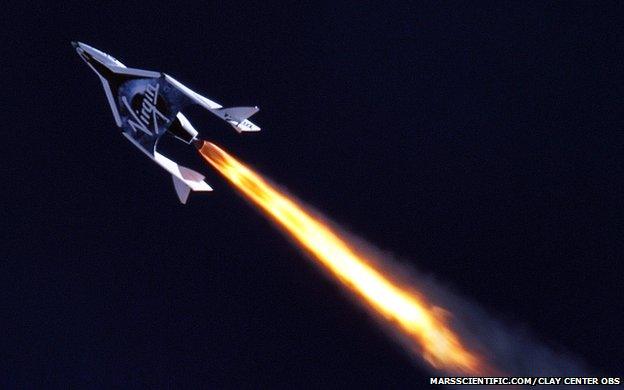
This is the year that Virgin Galactic should go sub-orbital - it hopes
"Soon" is the watchword. Virgin Galactic CEO George Whitesides says his passenger rocket plane should get into sub-orbital space within the next few months. Finally.
It's been a long road for the project, but you get the sense now that the light really could be starting to grow at the end of the tunnel.
Whitesides, who's always preferred to talk about "milestones" rather than "schedules", mentions the end of the year for a possible first powered flight to space.
A series of "proficiency" outings would then follow before Virgin Group boss Richard Branson inaugurates a service for which 700 people have so far paid substantial deposits.
It's 10 years since SpaceShipOne made history, external by becoming the first privately funded vehicle to make two trips above the Earth's atmosphere inside a week.
Back then, many of us thought a new era of commercial space travel would quickly be upon us.
In 2004, at a London media conference, Sir Richard famously brandished a model, external of his future spaceliner above his head and promised initial operations in 2007.
Propulsion challenge
Seven years on we're still waiting. It seems to be in the nature of these things that we underestimate the difficulties; timelines invariably "move to the right".
"Absolutely," Whitesides agrees. "I hate using a 'rumsfeldism', but it's true - you don't know what you don't know, and it's only when you've gotten into something that you really know how hard it's going to be.
"Everything we're doing is new, whether it's just technical things or even apparently mundane items like insurance.
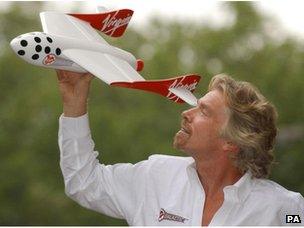
Back in 2004, the new era seemed very close
"All you can do is take some smart people and ask them to go try to work it out. This is a new, privately funded, human spaceflight programme, and it's a big deal."
The single biggest challenge has been the hybrid rocket motor that will propel SpaceShipTwo upwards.
The company has been trialling two different types of solid fuel grain, attempting to find the right level of performance when it's burnt in the presence of a liquid oxidiser.
Recently, the decision was taken to go with a polyamide-based plastic, and one more ground test this week should qualify the choice.
This will see the motor strapped to a rig in California's Mojave Desert and ignited for a full-duration burn.
Assuming that goes well, Virgin will then resume powered flights of the vehicle itself.
SpaceShipTwo hasn't done one of these since January when it reached 21km (71,000ft).
To get "into space", it will really need to reach 100km - the so-called Karman Line.
Patient passengers
Virgin is banking on the extra punch from the longer-burning plastic grain to get it over this line.
"I would certainly say the engine has been the number one challenge, but the effort we've had to put into that motor has given us time to deal with a whole range of other things that might have been on the critical path," says Whitesides.
"The oxidiser tank was a big effort and we solved it. Other areas that have taken a lot of effort have included the interior, the cabin. And even the vehicle itself - getting all that right for supersonic flight has been a lot of effort, too."
If all the near-term testing goes to plan, SpaceShipTwo's manufacturer, Scaled Composites, will formally hand over the vehicle to Virgin Galactic. And with this delivery should come a change in licensing.
What is currently deemed to be an "experimental aircraft" will need a "commercial licence" from the US Federal Aviation Authority to go to the next phase.
Once this is granted, the 700 would-be private astronauts really ought to be close to realising their dream.
When asked if the customers are getting just a little bit impatient, the CEO likes to point out that he's also a customer: he bought a ticket for himself and his wife before he applied to work for Virgin.
"The vast majority have signed up because they want this to happen, and they've been extraordinary over the last 10 years.
"They're a group of early adopters, people who know this wouldn't happen without them.
"They're also a well-educated group, many of whom understand the challenges of human spaceflight and want to see us do this right. But to answer your question bluntly: yes, we've had a few refunds over the years, but overwhelmingly those have been unrelated to the project and more related to someone having a change in their personal financial circumstances."
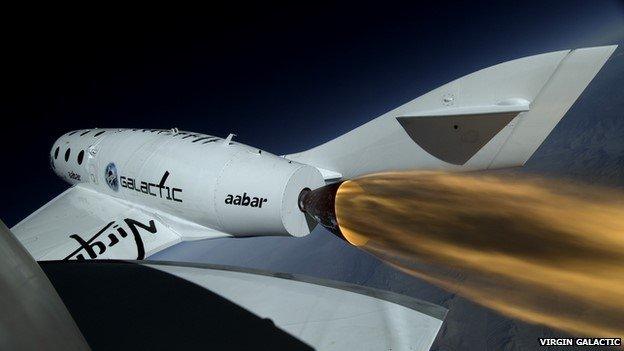
Getting the hybrid motor right has been the single biggest challenge
- Published15 July 2014
- Published29 May 2014
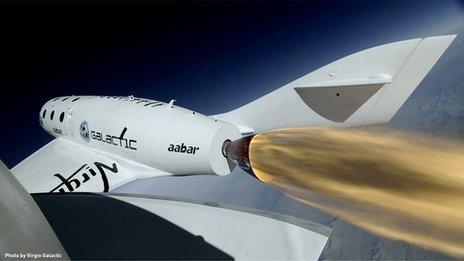
- Published7 September 2013
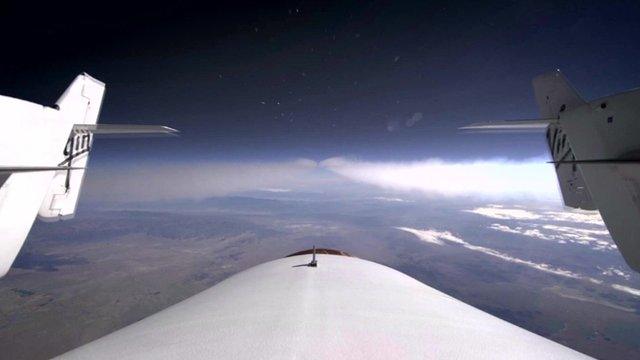
- Published29 April 2013
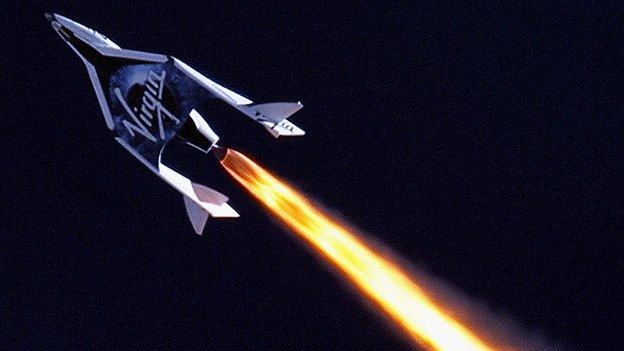
- Published11 December 2012
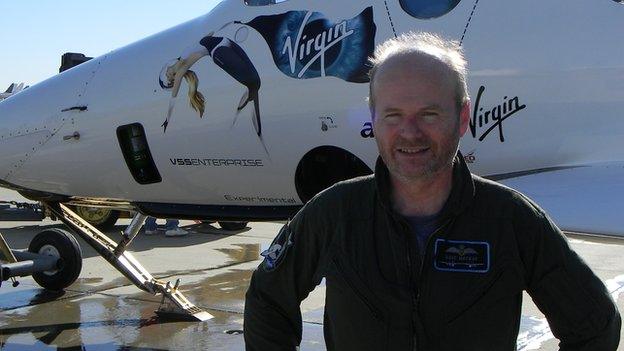
- Published4 December 2012
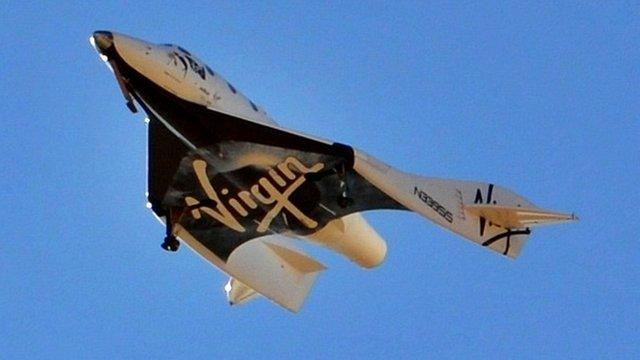
- Published11 July 2012